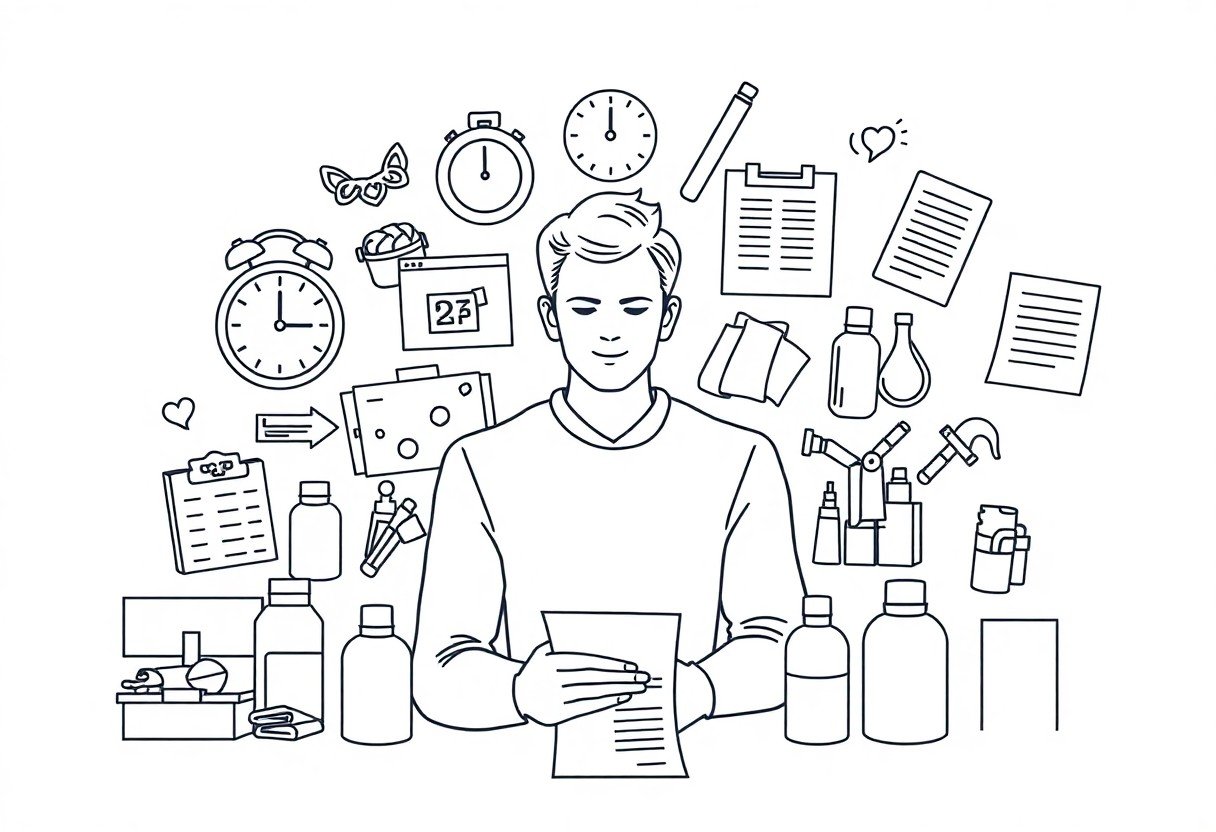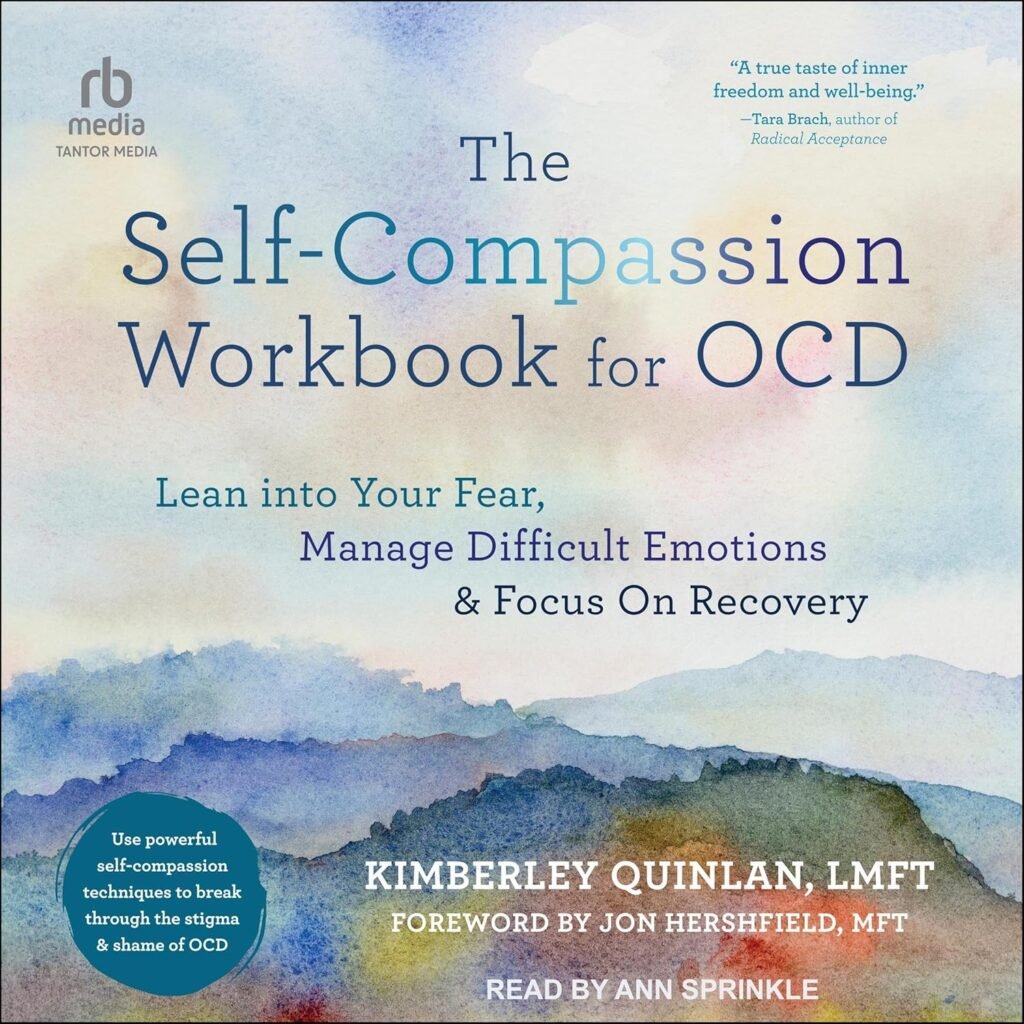OCD and Daily Life – Routines, Triggers, and Management
OCD Routines Triggers and Management Tips: OCD can significantly impact your daily life, shaping your routines and influencing how you respond to everyday triggers. Understanding how these patterns manifest is vital for effectively managing the condition. This post will explore common routines associated with OCD, identify potential triggers that may exacerbate your symptoms, and discuss practical management strategies. By recognising these aspects, you can empower yourself to lead a more balanced life, reducing the hold that OCD may have on you.
Key Takeaways:
- Understanding OCD involves recognising how daily routines can be affected by compulsions and obsessions.
- Common triggers may include stress, environmental factors, and specific situations that provoke anxiety.
- Establishing a structured daily routine can help manage symptoms and provide a sense of control.
- Engaging in exposure and response prevention (ERP) techniques can assist in reducing the impact of OCD behaviours.
- Seeking support from mental health professionals and connecting with support groups can enhance coping strategies.
Crafting a Daily Routine: The Balancing Act
Finding a daily routine that accommodates the complexities of OCD requires a delicate balance between structure and flexibility. You may benefit from a clearly defined sequence of tasks to help manage anxiety, while also leaving space for spontaneity and personal needs. Establishing this balance can encourage a sense of control, allowing you to navigate your day with more confidence. Additionally, this adaptable approach can assist you in gradually facing your triggers, cultivating resilience and enhancing your coping strategies.
Constructing Structure: Benefits of a Rigorous Routine
A rigorous routine can provide a stable framework for your day, significantly reducing uncertainty and anxiety. Consistent schedules allow you to anticipate your activities, which can mitigate the onset of obsessive thoughts. For instance, setting specific times for meals, work, and self-care can help you regain a sense of normality. This predictability often results in greater emotional stability and empowers you to tackle daily challenges with a clearer mind.
The Role of Flexibility: Adjusting for Life’s Uncertainties
Although rigidity can assist in managing OCD, allowing for some flexibility within your routine is equally important. Life is often unpredictable, and your day may not always unfold as planned. By incorporating a degree of adaptability, you open yourself to new experiences and reduce the pressure that can come from sticking too rigidly to a schedule. This flexibility can ease feelings of frustration and provide you with a healthier perspective on setbacks.
Adjusting your routine in response to life’s uncertainties can be a game changer. For instance, if unexpected events cause a disruption, recognising that it’s acceptable to revise your plans helps prevent feelings of failure or disappointment. Perhaps your workday is interrupted, or you face a last-minute social obligation. Embracing flexibility allows you to pivot without spiralling into anxiety, enabling you to manage your OCD symptoms while still engaging with the world around you. Cultivating this mindset ultimately aids in reinforcing your resilience, proving that you can adapt and still maintain control over your daily life.
Navigating Daily Triggers: Recognising Patterns
Identifying and understanding daily triggers is crucial in managing OCD effectively. By carefully observing your behaviour and reactions, you can uncover patterns that highlight specific stressors in your environment or social situations. A common strategy involves keeping a journal to note instances when intrusive thoughts or compulsions arise, allowing you to pinpoint potential triggers and address them proactively.
Common Sources of Stress: Environmental and Social Triggers
Environmental factors often play a significant role in triggering OCD symptoms. Places with clutter or disorganisation may evoke anxiety, while certain social situations, like crowded settings or conflict, can intensify those feelings. Recognising these sources of stress helps you prepare and potentially avoid uncomfortable scenarios that exacerbate your condition.
The Power of Awareness: Reflecting on Personal Experiences
Self-awareness can dramatically enhance your ability to cope with OCD. Reflecting on your own experiences—the situations that generate anxiety and the compulsions that follow—enables you to build resilience against triggers. Developing a clear understanding of these patterns equips you with the tools to manage your reactions and ultimately regain control over your daily life.
By consistently reflecting on your experiences, you can identify key situations that lead to heightened anxiety and compulsive behaviours. Ask yourself questions such as why a particular environment makes you uncomfortable or why engaging with specific individuals triggers certain thoughts. This reflection fosters a deeper understanding of your unique challenges, promoting a more tailored approach to stress management. Strategies such as cognitive behavioural techniques can be employed, helping you to navigate these experiences constructively and enhancing your overall quality of life.

Coping Mechanisms: Tools for Everyday Management
Implementing effective coping mechanisms can significantly improve your daily life and create a sense of control over OCD. Establishing a personalised toolkit of strategies empowers you to manage symptoms when they arise. Techniques such as mindfulness, grounding exercises, and cognitive approaches can help navigate the complexities of OCD, making it easier to maintain focus and calm in the face of overwhelming thoughts or compulsions.
Practical Strategies: Implementing Mindfulness and Grounding Techniques
Mindfulness and grounding techniques are effective strategies for staying present and reducing anxiety. Practising deep breathing, focusing on your senses, or engaging in body scan meditations can centre you and create a sense of calm. For instance, when feeling overwhelmed, taking a moment to notice five things you can see, four you can touch, three you can hear, two you can smell, and one you can taste can ground you in the moment and diminish intrusive thoughts.
Cognitive Approaches: Reframing Thoughts and Challenging Illusions
Reframing your thoughts and challenging cognitive distortions are key elements in managing OCD. By recognising and countering false beliefs, you can disrupt cycles of anxiety. Techniques such as thought diaries help track negative patterns, enabling you to critically assess and reframe these thoughts into more balanced perspectives. This shift can lead to a genuine reduction in compulsive urges.
The process of reframing thoughts requires diligence and self-awareness. Keeping a thought diary, for example, allows you to document instances where your OCD manifests, capturing the associated thoughts and feelings. Gradually, you can scrutinise these entries to identify cognitive distortions, such as catastrophising or all-or-nothing thinking. Challenging these illusions involves asking yourself about evidence for and against such beliefs, creating a more rational mindset that diminishes the power of obsessions over time. This cognitive restructuring can open doors to healthier responses and increased resilience in your daily life.

Seeking Support: Beyond Self-Management
Connecting with others can significantly enhance your ability to manage OCD. While self-management techniques are valuable, seeking support from professionals and peers can lead to more effective coping strategies and emotional relief. Engaging in therapy or group discussions helps you tap into a wealth of knowledge and experiences that can make a substantial difference in your daily life.
Professional Help: When Therapy Makes the Difference
Therapy offers tailored strategies to address your unique OCD challenges. Cognitive-behavioural therapy (CBT), particularly exposure and response prevention, has been proven to help reduce the intensity of your symptoms. Working with a trained therapist can provide you with the tools to confront and manage compulsions, vastly improving your overall functioning.
Community Connections: The Importance of Peer Support
Building connections with others who understand your experiences can lead to a profound sense of belonging. Peer support groups allow you to share your struggles and celebrate your victories together. Having a safe space where you can express your emotions free from judgment fosters an environment of acceptance and empathy, which is vital for your recovery journey.
Engaging with peer support can be transformative; hearing stories of resilience from others facing similar challenges often inspires hope. For instance, community groups can create activities that focus on coping strategies and skill-building, which benefits everyone involved. Additionally, sharing tips or techniques that have worked for you can empower others, promoting a sense of solidarity in navigating the complexities of OCD. You may find that camaraderie in these settings makes facing daily struggles feel less isolating.
Thriving with OCD: Redefining Success and Acceptance
Finding success while living with OCD involves a shift in perspective. Rather than striving for a perfect life devoid of anxiety, embracing your unique journey allows for a more fulfilling existence. You can recognise that success isn’t the absence of OCD, but rather how you choose to navigate your experiences. Acceptance paves the way for resilience, helping you to focus on personal growth and the development of effective coping strategies.
Personal Narratives: Finding Strength in Vulnerability
Sharing your experiences with OCD can be incredibly empowering. Personal narratives not only foster understanding but also create a sense of community. By articulating the challenges and fears you face, you connect with others who share similar struggles. This vulnerability transforms into strength, offering support and reducing feelings of isolation. Through storytelling, you become a part of a larger movement, advocating for awareness and acceptance.
Embracing Progress: Celebrating Small Victories in Daily Life
Every small step you take in managing your OCD deserves recognition. Celebrating these victories, no matter how minor they may seem, reinforces positive behaviour and boosts your confidence. Whether it’s facing a difficult trigger or completing a task with less anxiety, acknowledging these moments builds momentum for further progress.
Embracing those small victories creates a powerful ripple effect in your daily life. Each moment you refrain from succumbing to compulsions is a step towards reclaiming your autonomy. For example, if you manage to engage in a social situation that previously caused you distress, recognising that achievement, however small, reinforces your ability to take on challenges. Setting aside time each week to reflect on these successes helps you maintain a positive outlook, keeping you motivated as you navigate your path with OCD. Over time, these small victories can lead to significant shifts in how you view your condition and live your life.
Summing up
Conclusively, understanding your routines, identifying triggers, and employing effective management strategies are vital in navigating daily life with OCD. By recognising the patterns in your behaviours and seeking professional help where needed, you can adopt practical coping mechanisms that enhance your quality of life. Establishing a structured routine not only minimises anxiety but also empowers you to take control of your thoughts and actions. Embrace the journey, and with consistent effort, you can significantly improve your daily functioning and well-being.
FAQ
Q: How does OCD affect daily routines?
A: Individuals with Obsessive-Compulsive Disorder (OCD) often find that their daily routines are significantly impacted by their compulsions and obsessions. These may include repetitive behaviours, such as excessive cleaning or checking, which can prolong daily tasks. As a result, simple activities like getting ready in the morning or leaving the house can become time-consuming and stressful. It is important for those with OCD to develop strategies to manage these influences on their routines.
Q: What triggers OCD symptoms in daily life?
A: Triggers for OCD symptoms can vary considerably from person to person. Common triggers may include stressful situations, specific places, certain objects, or interactions with particular individuals. Understanding personal triggers is imperative for those with OCD, as it can help them anticipate and manage anxiety-provoking situations more effectively. Keeping a diary of triggers can also provide insights into patterns and encourage proactive coping strategies.
Q: How can routines be adapted for someone with OCD?
A: Adapting routines for someone with OCD involves finding a balance between managing compulsions and maintaining a functional daily life. This might include setting realistic time limits for tasks, incorporating short breaks, and allowing flexibility in routines. Gradual exposure to anxiety-inducing situations may also help desensitise individuals to their obsessions. Seeking support from a mental health professional can be beneficial in developing tailored strategies for managing OCD within daily routines.
Q: What are some effective management techniques for OCD in daily life?
A: Effective management techniques for OCD include cognitive-behavioural therapy (CBT), particularly exposure and response prevention (ERP). Mindfulness practices can also help manage anxiety levels. Additionally, building a support network of friends, family, or support groups can provide emotional assistance and accountability. Medication may be considered in consultation with a healthcare professional to help alleviate symptoms for some individuals.
Q: Is it possible to live a fulfilling life with OCD?
A: Yes, it is absolutely possible to lead a fulfilling life while managing OCD. With appropriate treatment, including therapy and potential medication, individuals can develop coping strategies that allow them to engage in daily activities and pursue their personal goals. Building a supportive environment and focusing on personal strengths can greatly enhance life satisfaction, enabling those with OCD to thrive in various aspects of life.







